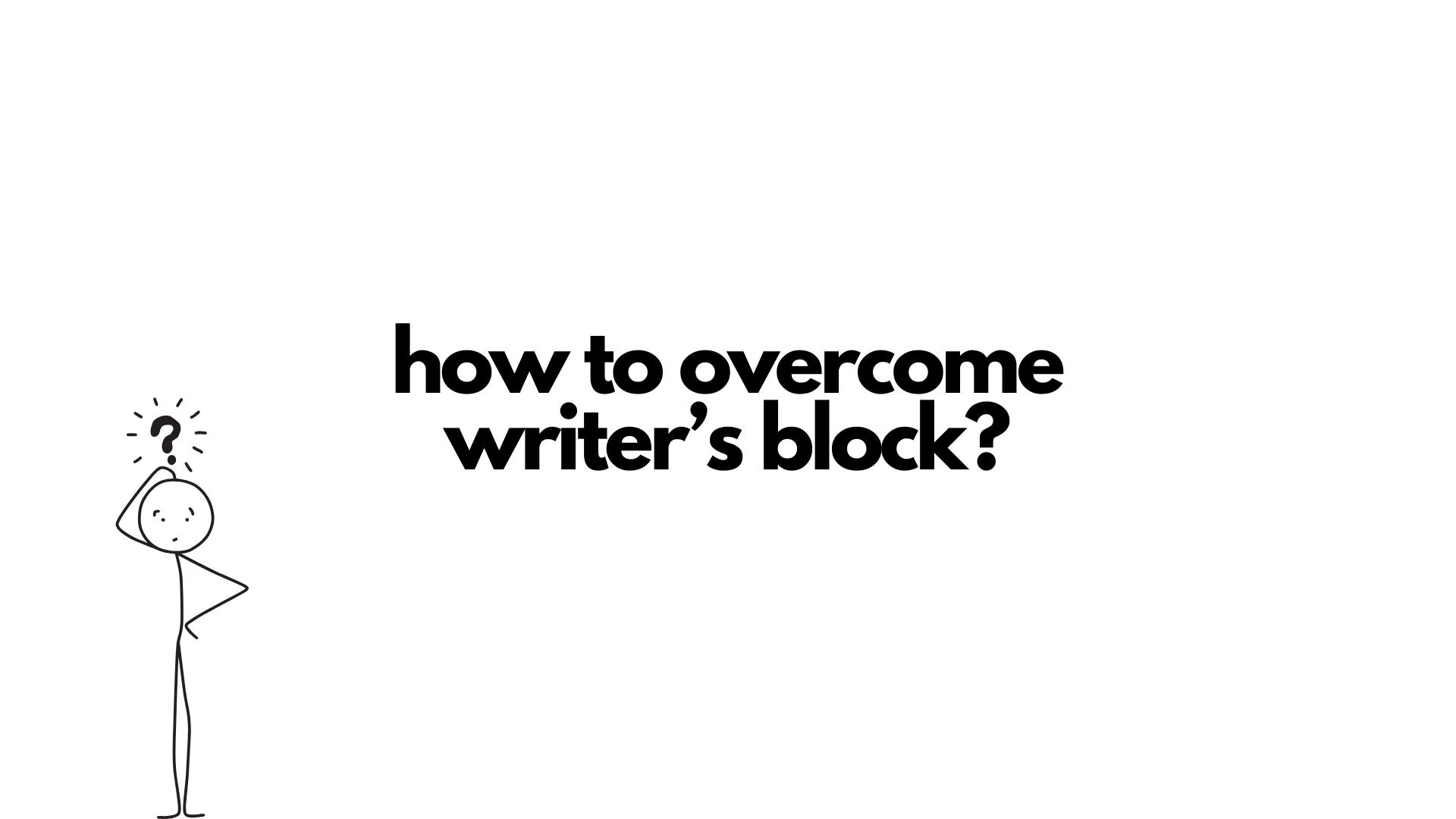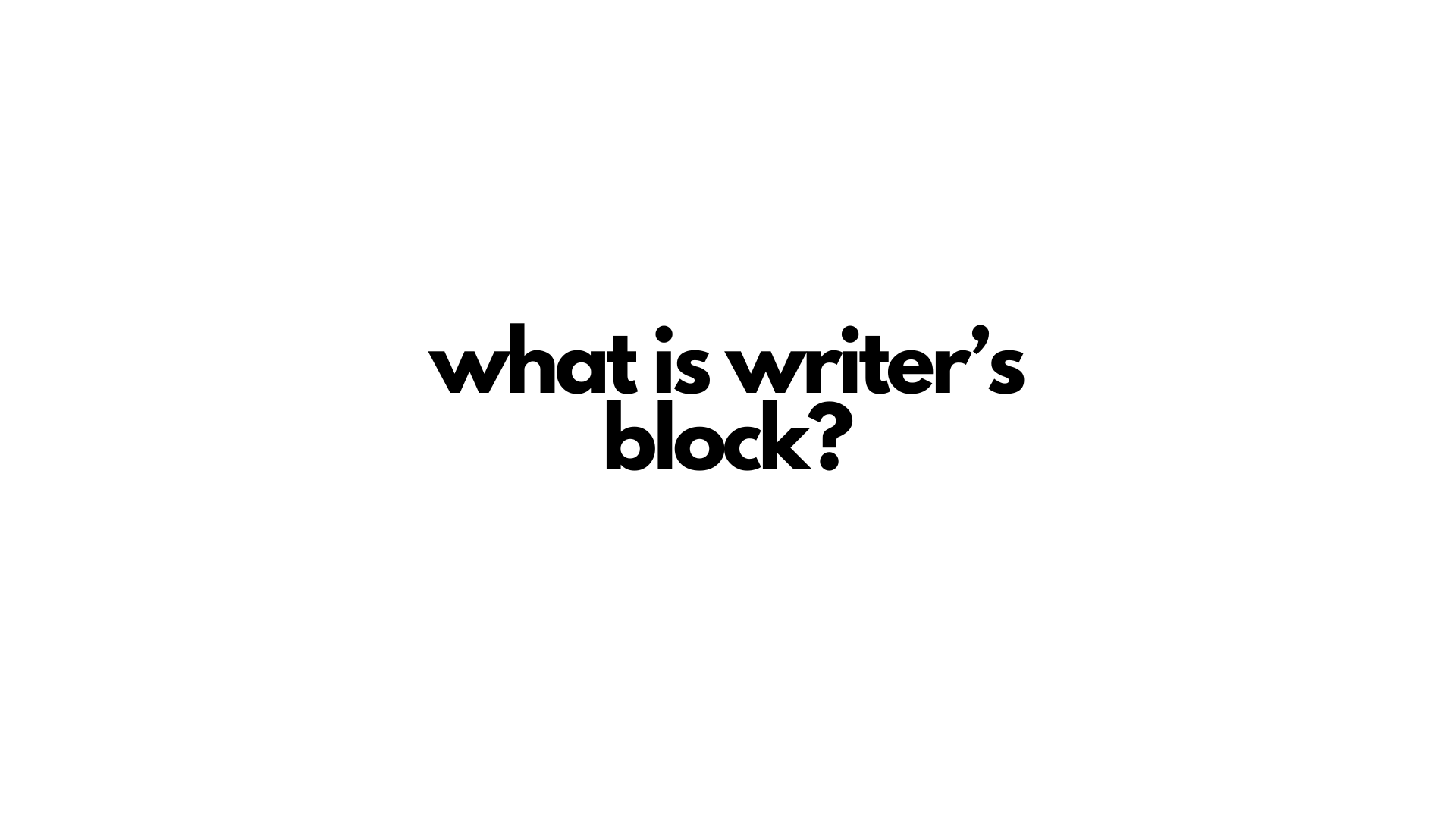I feel dumb when I stare at the blank page and my hands are not typing – does it sounds familiar? Most writers experience the same, the writer’s block is common for us.
I don’t remember how many times I experience this. But after almost 4 years of writing, I found out which and what are the things that you can do to overcome your writer’s block in a natural way that I find effective – and other writers are doing the same!

If you are a writer that…
- Always stare at the blank page and don’t know what to do
- Can’t think of any ideas to write
- Can’t finish writing on one sit
- Never finished a draft
This blog post is for you! We will cover all of the pain points that you will experience especially when you are just starting out in this industry. In the end, you can find an actionable tips and start writing consistently throughout your journey!
What is writer’s block and why does it happen?

Writer’s block refers to a stage or feeling of being unable to write due to several reasons such as lack of knowledge on a topic, overwhelming information, perfectionism, and lack of motivation.
This is really frustrating as a writer.
Writer’s block happens and how to overcome it?
Fear of failure and perfectionism
When I was writing for the first time, this was my main blockage in writing a blog post. I was always thinking that
“People who knows me might read my post and judge me”
“I could be writing wrong information”
“I might be formatting this blog post wrong.”
Trust me, every writer experiences the same – you are not alone, so you better get up and just start writing. You should not overthink your content and what you should write, edit button is made for a reason. You can correct it anytime later.
Lack of inspiration and ideas
After publishing 5-10 blog posts, you will feel that you already wrote all of the topics and ideas that you can write.
But that’s not true!
There’s a bunch of topics that you can write and share online, you are not just finding it. When I experience the same, what I always do is to read and consume content. Then find inspiration and topics to write about it.
Have you heard of “steal like an artist”? Sometimes, what you need is to steal those ideas from great writers and write your own version – this way you can produce content and improve it later.
Also read:
- Stop Procrastination Now! (A Simple Guide That You Need for Productivity)
- How To Choose Your Niche in Medium
- How to Write SEO-Friendly Content: A Beginner’s Guide
Mental and physical fatigue
After a long work day, you must feel tired and exhausted – but sometimes, you will feel that you have to write something, but your body and mental capacity can’t do it.
This always happen when you have other commitments in life and writing is not your full-time job.
I experience the same.
After going to school, I feel that I should write something as part of my writing routine. Besides, writing is my part-time job, it pays my internet and leisure. So, I have to write and grind to earn.
However, when I can’t manage everything and I feel exhausted after a long day, I don’t try to write anything write away. I start taking a rest first and write later. Most of the time, I take a nap to rest my mind and body until my ideas flow again naturally.
Procrastination and distractions
Okay, everyone feels guilty for this. How many times do you look on your phone and scroll on your feed VS writing something?
I bet the former takes much of your time – it should be controlled, or else you will lose your momentum in writing.
What I do is leaving my phone on another place which is far from my table and workplace so I can focus on what I am writing. This gives a distraction-free experience for myself and so I can write more.
Also read:
- How to Develop Your Productivity Mindset: Achieve More with Less Stress
- 18 Productivity Tips For Work To Become Successful
- 5 Powerful Applications That Will Actually Boost Your Productivity
Common questions that most new writers ask

What if I can’t think of any ideas?
You can always take a walk outside and move out from your workplace. Sometimes, staying at your workplace for the whole time is unmotivating and making your mind blank.
Start making inspirations and ideas from outside so you are giving yourself a time to breath, make connections with the nature, and being productive as a writer.
A writer on Medium, John Pucay, shared his routine when writing a content where he goes outside, walk and run, to keep the words flowing into his head. I can support this because I also do the same when I feel stuck to writing and I can’t find any ideas to write. Ideas are everywhere! What you need is the will to write it.
Bonus tip: You can also visit other sites to create and generate a prompt or use AI and ChatGPT to create a prompt for you. This way, you can have any ideas that is align to your niche.
How do I stay motivated to write daily?
When you feel unmotivated, it is actually the time to start writing more. Sometimes, motivation is just a limiting belief for you not to write something. You are not unmotivated; you are just being lazy.
You can always join to community groups and read content so you find ideas from other writers.
I often do this to get inspiration and stay motivated. Frequently, I look at other’s stats, data, and earnings so I will remember my goal and purpose of why I write.
What if I feel stuck halfway through the draft?
When you feel this, what you can do is to take a short break and look to your outline. Plan what you should do next and read some content about it. I always experience this due to burn out after writing a lot of words non-stop.
I lay down, read some other content, and get back on track by writing again. You should never stop writing your draft for hours, you will lose your momentum and there is a high chance that you won’t finish it anytime soon.
Conclusion
Writer’s block is just a common phase, you are not special because everyone experiences the same. What you need to do is to start sitting on your desk and apply these actionable tips to start writing your ideas.
It doesn’t have to be perfect at first, the most important is that you started something. You can edit it later after writing everything. Editing and proofreading phase exist! Don’t overthink, never start formatting your content, just write. Then later on, edit. You will realize that you already wrote 1000-word blog post – it creates a momentum to finish a single blog post. Then hit publish!
By following these actionable tips, you can be consistent in writing a well-crafted blog post and never lose your motivation in writing.
Posted Using InLeo Alpha